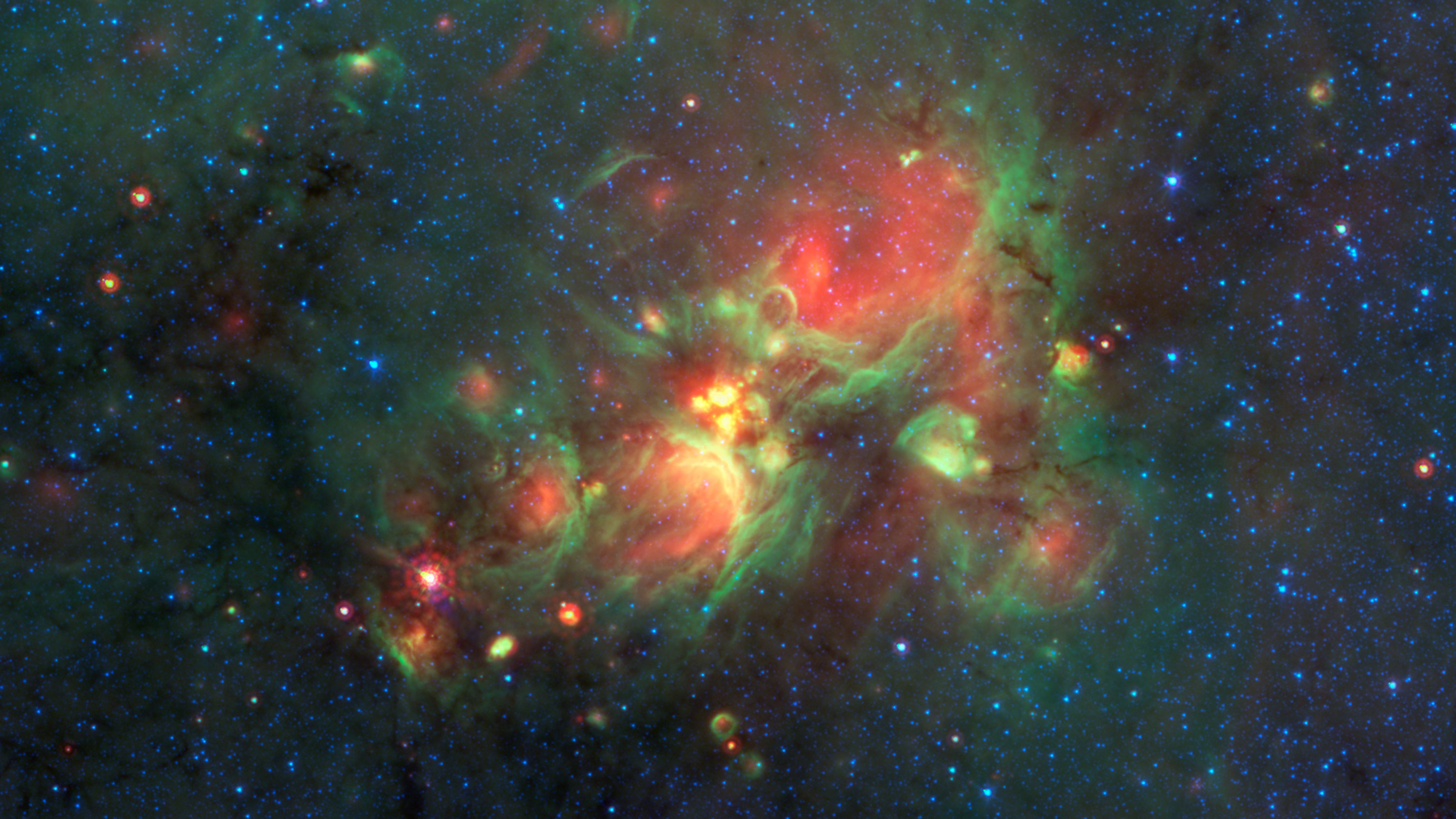
Copyright:
原文:
Infrared wavelengths of 3.6, 8.0, and 24.0 microns observed by the Spitzer Space Telescope are mapped into visible colors red, green, and blue in this striking image. The cosmic cloud of gas and dust is W33, a massive starforming complex some 13,000 light-years distant, near the plane of our Milky Way Galaxy. So what are all those yellow balls? Citizen scientists of the web-based Milky Way Project found the features they called yellow balls as they scanned many Spitzer images and persistently asked that question of researchers. Now there is an answer. The yellow balls in Spitzer images are identified as an early stage of massive star formation. They appear yellow because they are overlapping regions of red and green, the assigned colors that correspond to dust and organic molecules known as PAHs at Spitzer wavelengths. Yellow balls represent the stage before newborn massive stars clear out cavities in their surrounding gas and dust and appear as green-rimmed bubbles with red centers in the Spitzer image. Of course, the astronomical crowdsourcing success story is only part of the Zooniverse. The Spitzer image spans 0.5 degrees or about 100 light-years at the estimated distance of W33.
中文翻譯:
🌌 在這幅驚人的圖像中,我們可以看到由斯貝茨空間望遠鏡(Spitzer Space Telescope)觀測到的紅外線波長3.6、8.0和24.0微米映射為可見光的紅、綠和藍色。這片宇宙氣體和塵埃雲是W33,一個距離我們約13,000光年、位於我們銀河系的恆星形成複合體。
🔍 網絡公民科學家在掃描許多斯貝茨圖像時發現了這些被稱為「黃色球體」的特徵,並持續向研究人員提出問題。現在有了解答了!這些黃色球體被識別為大型恆星形成的早期階段。它們呈現黃色,因為是紅色和綠色區域的重疊,這些顏色分別對應於塵埃和稱為PAHs的有機分子。
🌟 黃色球體代表著新生大恆星清理其周圍氣體和塵埃之前的階段,這時它們在斯貝茨圖像中呈現為綠色邊緣和紅色中心的泡泡。當然,這項天文學群眾外包的成功故事只是Zooniverse的一部分。這幅斯貝茨圖像的範圍大約為0.5度,約100光年,推測距離W33。
#W33 #SpitzerSpaceTelescope #CosmicDiscovery #YellowBalls #StarFormation #Astronomy #CitizenScience #Zooniverse #MilkyWay #SpaceExploration #InfraredAstronomy #StellarNursery
來源:NASA每日圖片


